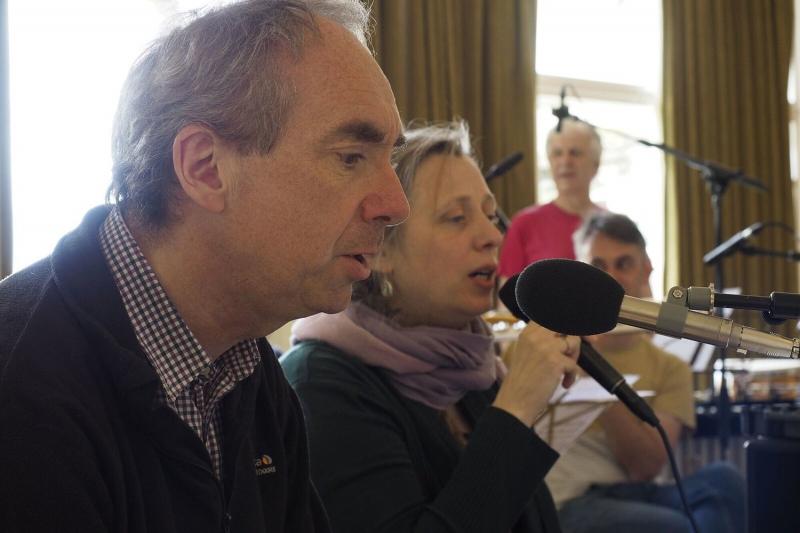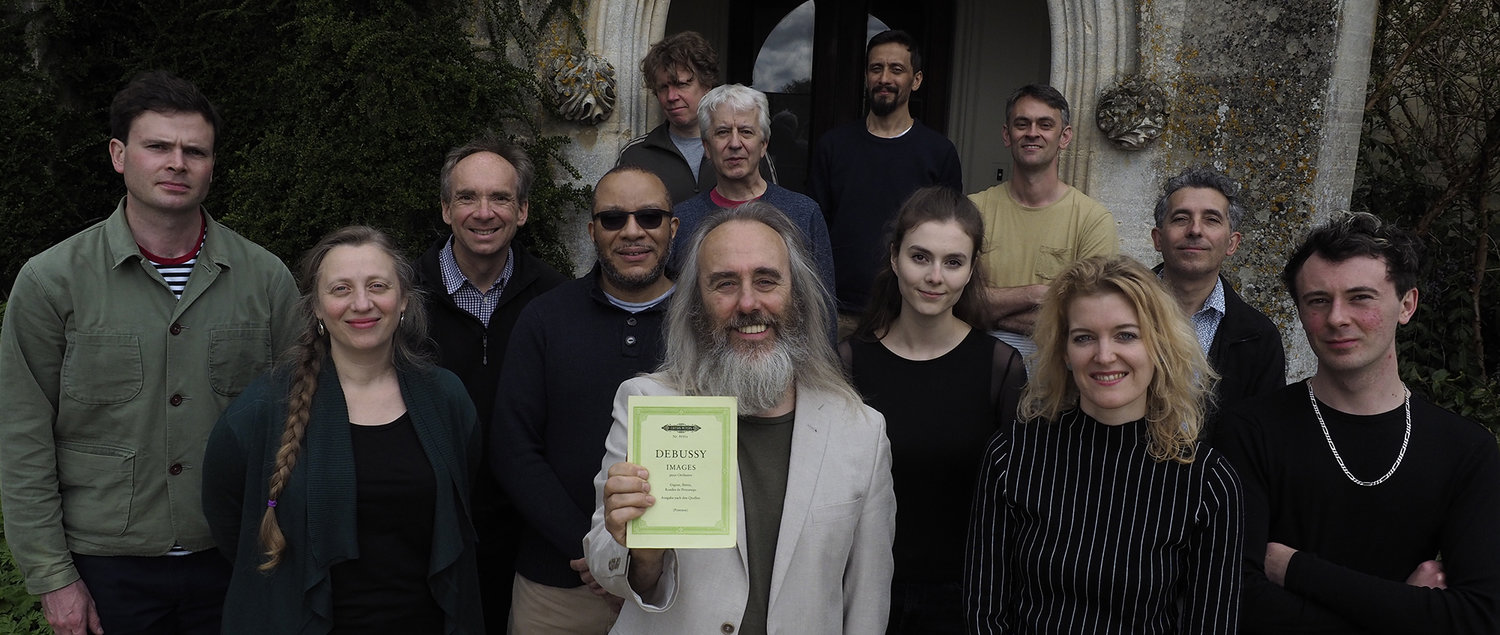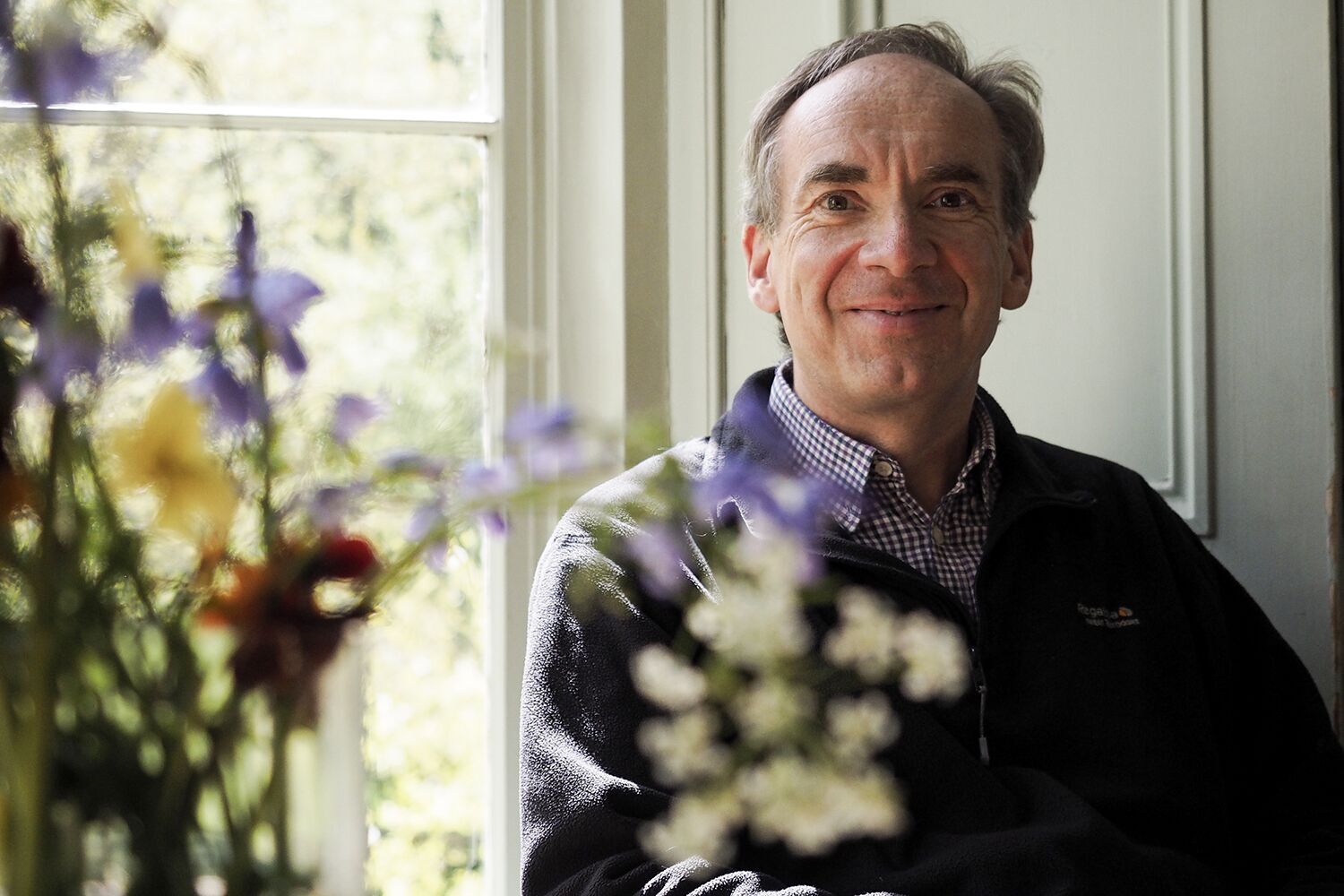'Stepping right out of my comfort zone': James Gilchrist on mixing Debussy with jazz | reviews, news & interviews
'Stepping right out of my comfort zone': James Gilchrist on mixing Debussy with jazz
'Stepping right out of my comfort zone': James Gilchrist on mixing Debussy with jazz
The tenor writes about working on Eddie Parker's boundary-crossing project

Debussy is having a good year. It is wonderful to see such wide and varied celebrations of his life and work, and to let the century since his death bear witness to the huge influence he has had on writers in every field of music.
Of course, no one can claim to know every field of music. All of us know what we know, and tend to become more proficient and knowledgeable in an area of music that narrows over time. We find where our skill-set fits, what we’re good at. This is certainly true of me: over my working life I’ve found niches in the musical world where I seem to feel comfortable, and (hopefully) have something to offer and say. Increasingly these days, I find myself working in recital with piano or a few instruments, exploring the German Lied, French chanson, and English song. So it is easy for me to see Debussy’s mark in the so-called art song, and it’s been a joy to find myself performing more of his work this year. But how can I claim to see his influence elsewhere?
I may be about to get a glimpse of how he has fed the world of jazz. I have become involved in a project with the jazz musician Eddie Parker, where we will be revisiting the music of Debussy in the hands of jazz and classical musicians. We will be reworking and reinventing songs, piano works and orchestral scores and creating a new work suffused with Debussy’s spirit. Eddie is a founder member of Loose Tubes and has written for and performed with the Moog Ensemble. He has been a major name in jazz for several decades (pictured below in the centre, with Gilchrist third from left). He has had a lifelong fascination with Debussy, and is writing an extended work which will be heard this year in the Cheltenham Festival, in York, Bristol and on the South Bank. I feel enormously flattered and lucky to have been asked to become involved, but to say I feel comfortable about it would not quite be true.  What I know about jazz is embarrassingly little. A little less than nothing. It’s just never formed part of my life, other than occasionally in the audience. How do I feel about being involved with the project? Frankly, terrified! At the time of writing, I’ve no idea what to expect. I’ve learned the songs that the work is using as “source material”, but I am full of fear stepping into a world which I don’t understand at all. I have this idea that it’s all so very different in jazz – that improvisation forms a huge part of the process; that music-making is free, yet governed by a set of rules which I don’t know and cannot understand; that I’ll make a fool of myself; that I just won’t be able to do what is wanted of me – that I’ll be all wrong, that I won’t fit, my penny-worth will be deemed valueless. Of course, musicians quite often feel like this: I’m sure we all get that “what on earth am I doing here?” feeling as we gaze at the audience, wondering why they are all looking at us. That feeling of wishing to be elsewhere can be at times overwhelming. For this project I am stepping right out of my comfort zone.….
What I know about jazz is embarrassingly little. A little less than nothing. It’s just never formed part of my life, other than occasionally in the audience. How do I feel about being involved with the project? Frankly, terrified! At the time of writing, I’ve no idea what to expect. I’ve learned the songs that the work is using as “source material”, but I am full of fear stepping into a world which I don’t understand at all. I have this idea that it’s all so very different in jazz – that improvisation forms a huge part of the process; that music-making is free, yet governed by a set of rules which I don’t know and cannot understand; that I’ll make a fool of myself; that I just won’t be able to do what is wanted of me – that I’ll be all wrong, that I won’t fit, my penny-worth will be deemed valueless. Of course, musicians quite often feel like this: I’m sure we all get that “what on earth am I doing here?” feeling as we gaze at the audience, wondering why they are all looking at us. That feeling of wishing to be elsewhere can be at times overwhelming. For this project I am stepping right out of my comfort zone.….
It’s now a few days after our three-day workshop, and I’ve had a chance to think about our making music together. The group involved comprises a drummer (Martin France), a bass (Steve Watts), a percussionist (Simon Limbrick), a pianist (Alcyona Mick), harpist (Imogen Ridge), bass clarinettist (James Allsopp), four flautists (Gareth Lockrane, Jan Hendrickse, who also plays middle-Eastern flutes, Rowland Sutherland, and Eddie Parker himself) and two vocalists (Brigitte Beraha and me). I hope I didn’t make too much of a fool of myself. I certainly learned a huge amount. There was much that I felt inadequate about. And I struggled with working with a microphone, and watched in awe others’ astonishing microphone technique. To say I’m full of admiration for my colleagues would be a gross understatement. These men and women are simply astonishing musicians: hugely talented instrumentalists, able to conjure colour and inventiveness at a whim, who are so adept at working with each other.  This was detailed chamber-music making, where each musician’s expressive idea or thought can be nurtured and mirrored by their colleagues. They never seemed to make mistakes, play anything out of tune or not together. It was a huge privilege to be in the same room as musicians such as these. And Eddie’s writing was stunning. Some is pretty much straight arrangements of songs of Debussy. Some a clever working-together of Debussy fragments. Some more abstract work. Each piece comprises some or all of these elements. Improvisation is indeed a big part of many numbers. What strikes me in the writing is how perfect a fit the music of Debussy is in the language of jazz. Harmonically and melodically, Eddie and Debussy seem to wind around and in and out of each other. And the drive from the drum kit seems second nature. We wondered amongst ourselves what Debussy might have made of it all. I think our general feeling was that he’d have been delighted. He saw the essence of music as transcending artistic boundaries. This project simply takes this one stage further. Is it jazz or classical? I think very definitely jazz, but who cares? And what does that question mean?
This was detailed chamber-music making, where each musician’s expressive idea or thought can be nurtured and mirrored by their colleagues. They never seemed to make mistakes, play anything out of tune or not together. It was a huge privilege to be in the same room as musicians such as these. And Eddie’s writing was stunning. Some is pretty much straight arrangements of songs of Debussy. Some a clever working-together of Debussy fragments. Some more abstract work. Each piece comprises some or all of these elements. Improvisation is indeed a big part of many numbers. What strikes me in the writing is how perfect a fit the music of Debussy is in the language of jazz. Harmonically and melodically, Eddie and Debussy seem to wind around and in and out of each other. And the drive from the drum kit seems second nature. We wondered amongst ourselves what Debussy might have made of it all. I think our general feeling was that he’d have been delighted. He saw the essence of music as transcending artistic boundaries. This project simply takes this one stage further. Is it jazz or classical? I think very definitely jazz, but who cares? And what does that question mean?
I was greatly struck too by how my own prejudices had coloured my fears beforehand: I had glibly lumped all my colleagues together as “jazzers”, assuming both that they were a “them” and that they felt more comfortable than I did. Both of these were hugely wrong. The musicians in the group come from all sorts of musical backgrounds. Further, the styles of jazz that were encompassed within the group was huge and immensely varied. And also, everybody was feeling as discombobulated as me! Indeed we were all plagued with fears of not quite knowing what we were in for and whether we’d fit in and our input have any value.  I have learned and gained so much – a huge amount – over these few days. Not least in the field of improvisation. It’s not a free-for-all, but closely worked on motifs, rhythmic and tonal/modal structures. Perhaps I will be able to bring some of what I’ve learned watching people who are experts in improvisation into the little I’m allowed in cadenzas. Their improvisation is totally alive and in the moment. Improvising musicians live a part that we’ve lost in the “classical” tradition. All the great musicians of the past would have considered composition, performance (singing and playing), improvisation, understanding of harmony, showmanship and criticism as being a normal part of musicianship. I think we’ve lost this a bit in the classical world, in concentrating on hyperspecialisation.
I have learned and gained so much – a huge amount – over these few days. Not least in the field of improvisation. It’s not a free-for-all, but closely worked on motifs, rhythmic and tonal/modal structures. Perhaps I will be able to bring some of what I’ve learned watching people who are experts in improvisation into the little I’m allowed in cadenzas. Their improvisation is totally alive and in the moment. Improvising musicians live a part that we’ve lost in the “classical” tradition. All the great musicians of the past would have considered composition, performance (singing and playing), improvisation, understanding of harmony, showmanship and criticism as being a normal part of musicianship. I think we’ve lost this a bit in the classical world, in concentrating on hyperspecialisation.
This project has been a long time since germination in Eddie’s subconscious. I think for all of us it was a bit of a step into the unknown. I can’t speak for the others, but I have certainly found it revelatory. Coming with an open mind, I’ve found myself humbled but greatly enriched. I am not really sure that what I bring to the table adds very much, but I am hugely looking forward to the performances, when I hope the audiences will similarly be able to appreciate this fruitful collaboration and see for themselves Debussy’s profound influence in works that seem to come from another sphere.
The future of Arts Journalism
You can stop theartsdesk.com closing!
We urgently need financing to survive. Our fundraising drive has thus far raised £49,000 but we need to reach £100,000 or we will be forced to close. Please contribute here: https://gofund.me/c3f6033d
And if you can forward this information to anyone who might assist, we’d be grateful.

Subscribe to theartsdesk.com
Thank you for continuing to read our work on theartsdesk.com. For unlimited access to every article in its entirety, including our archive of more than 15,000 pieces, we're asking for £5 per month or £40 per year. We feel it's a very good deal, and hope you do too.
To take a subscription now simply click here.
And if you're looking for that extra gift for a friend or family member, why not treat them to a theartsdesk.com gift subscription?

Add comment